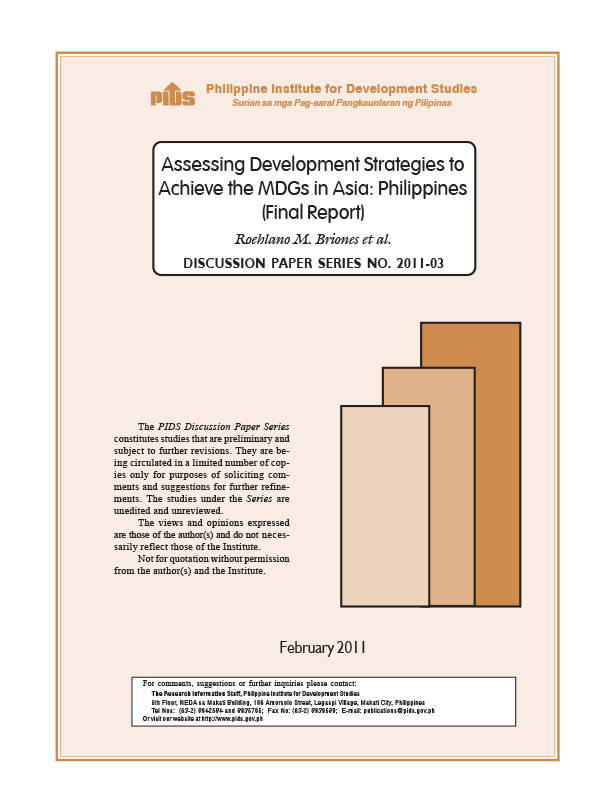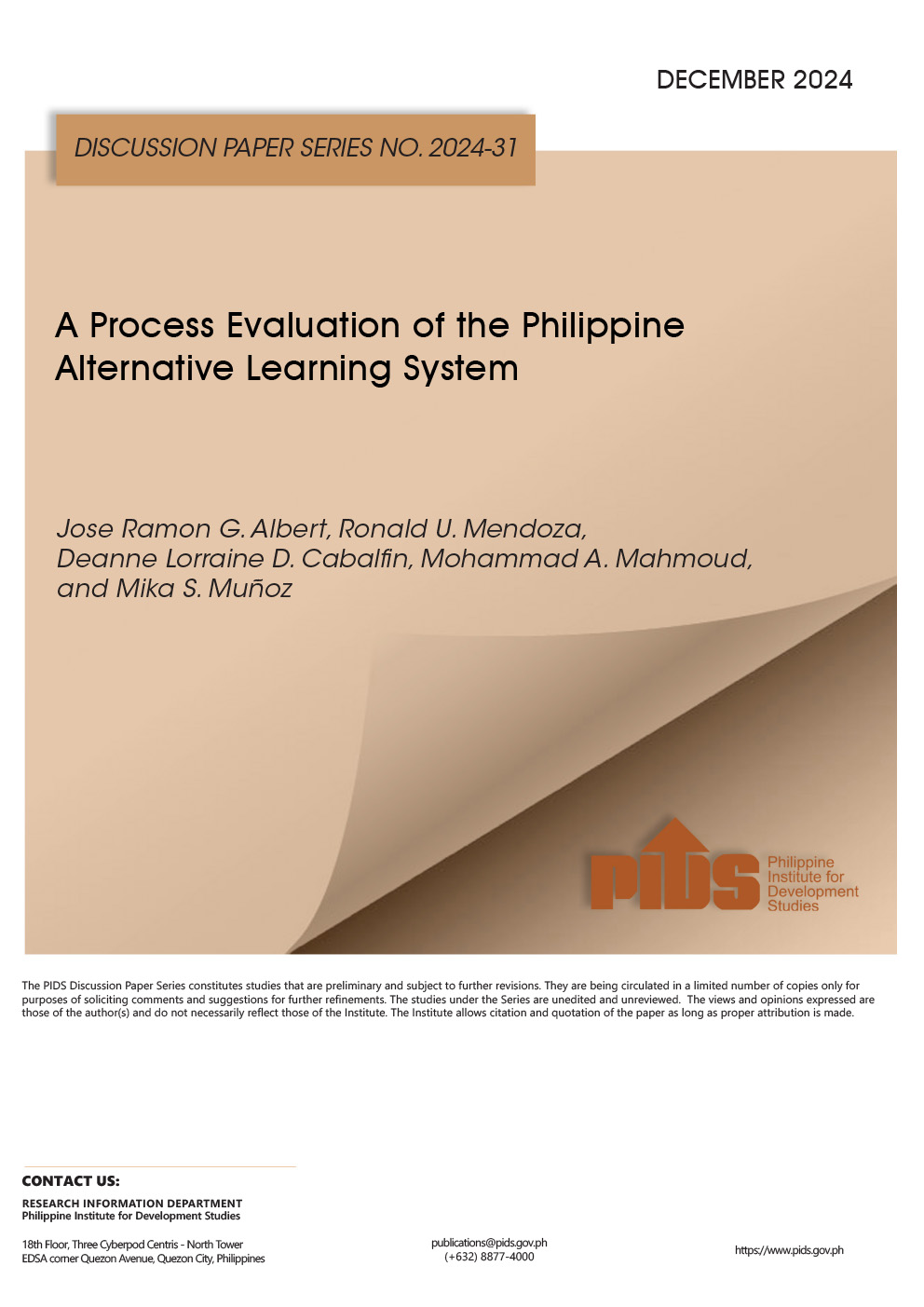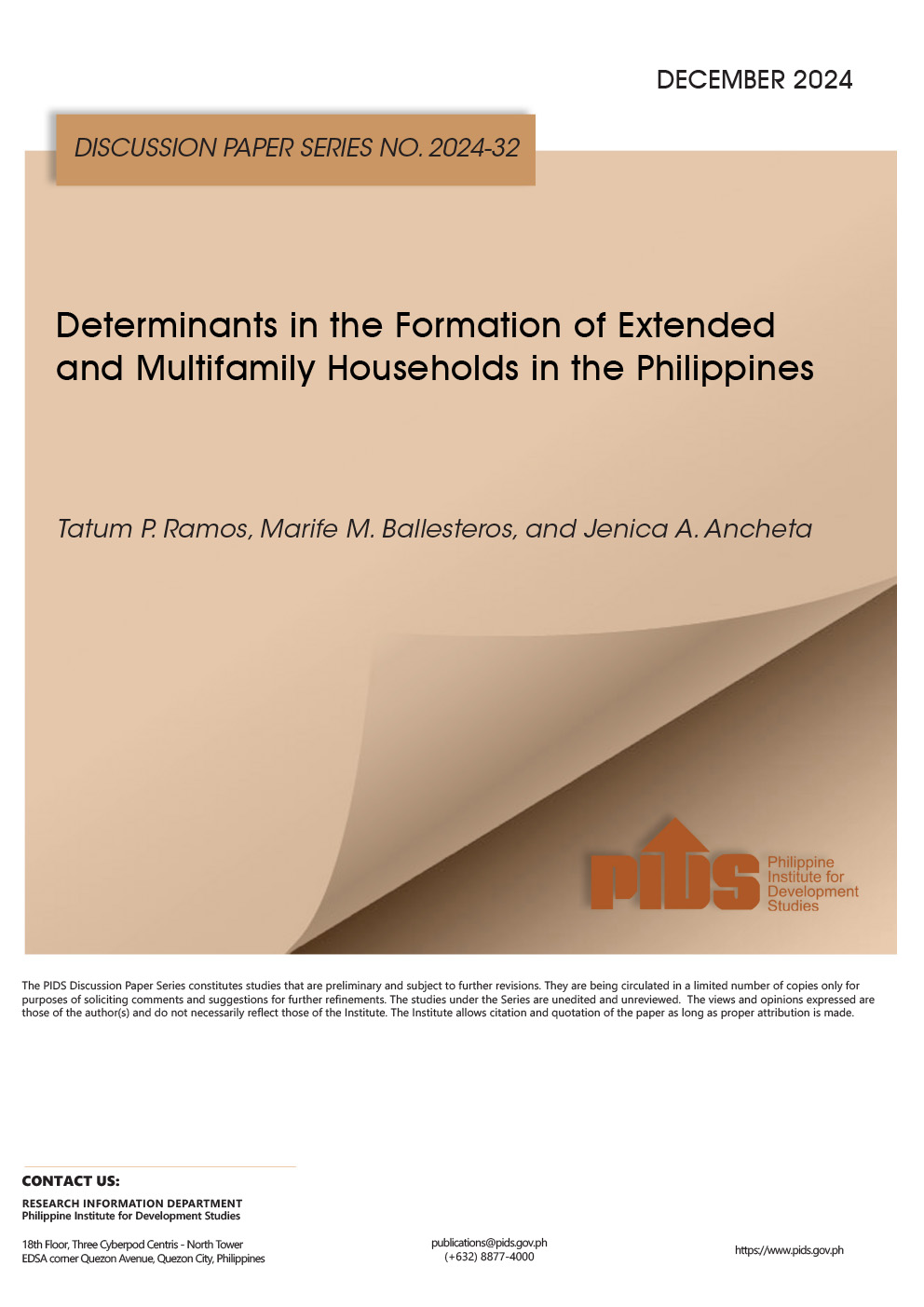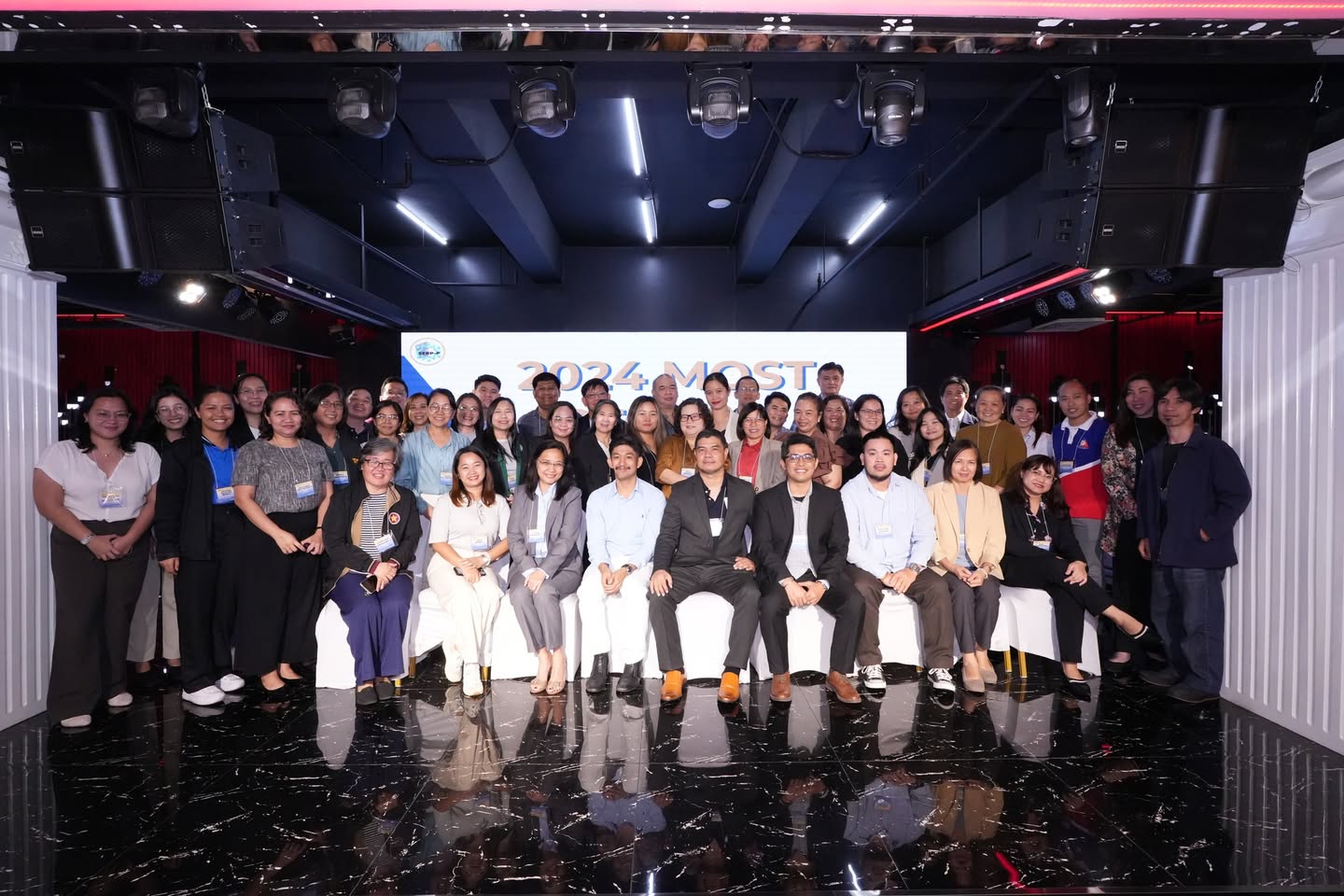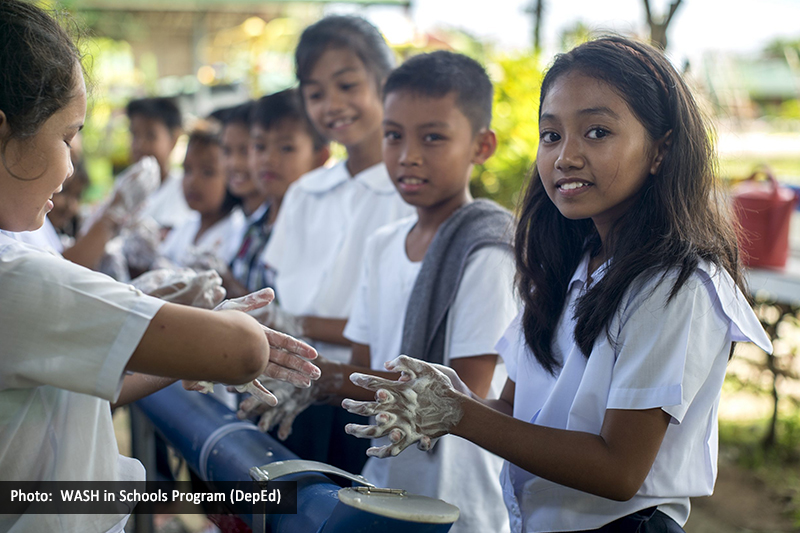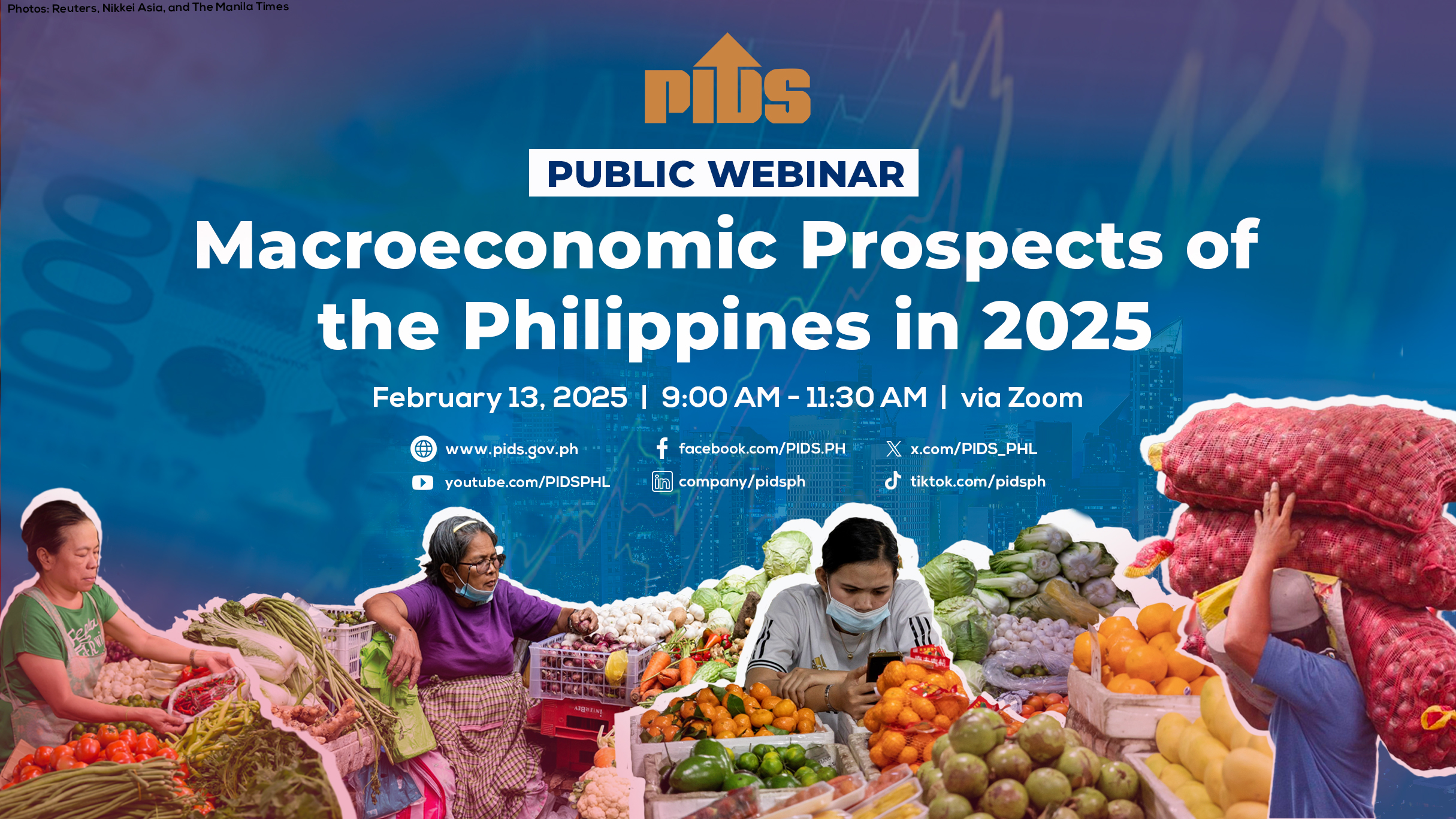The Philippines is a developing country with strong commitment to the millennium development goals (MDGs). However, it faces challenges in closing MDG gaps, owing to mediocre growth, macroeconomic instability, and financing constraints. Since the 1990s, increases in per capita incomes have been pulled down by tepid growth in productivity, rapid population growth, and macroeconomic instability. Since the mid-1980s, however, various reforms have been implemented to lay the foundation for sustained growth and poverty reduction.The external imbalance was a concern in the 1980s and 1990s, as the country endured balance of payments crises and persistent trade deficits; however, recently capital inflows have soared, due mainly to rapid growth of overseas remittances. The fiscal balance remains a policy challenge; public finance through borrowing, whether domestic or foreign, is complicated by large and persistent debt stocks. ODA has shrunk, owing in part to institutional factors. Recently public finance through taxation has suffered from tentative revenue effort.The country`s record in the MDGs is mixed. Progress has been made in child health, potable water, and sanitation. However, inroads against extreme poverty are complicated by an anomalous relationship between poverty and growth. The responsiveness of education outcome to public spending is apparently low; goals for education and maternal health remain elusive.The study recommends attempting to close the MDG gaps using tax financing. This financing option is feasible in the sense that the required revenue effort has been achieved in previous decades. Admittedly, it entails a dramatic improvement in revenue effort compared to most recent (decadal) trends. This underscores the urgent, development-based rationale for raising tax collection efficiency, introducing new tax policies, in combination with public sector reforms for cost-effective service delivery.
Citations
This publication has been cited 2 times
- Martinico-Perez, Marianne Faith et. al. 2018. The socio-economic metabolism of an emerging economy: Monitoring progress of decoupling of economic growth and environmental pressures in the Philippines. Ecological Economics, 147, 155-166 . Elsevier.
- Martinico-Perez, Marianne Faith et.al. 2018. The socio-economic metabolism of an emerging economy: Monitoring progress of decoupling of economic growth and environmental pressures in the Philippines. Ecological Economics, 147(C), 155-166. Elsevier.

